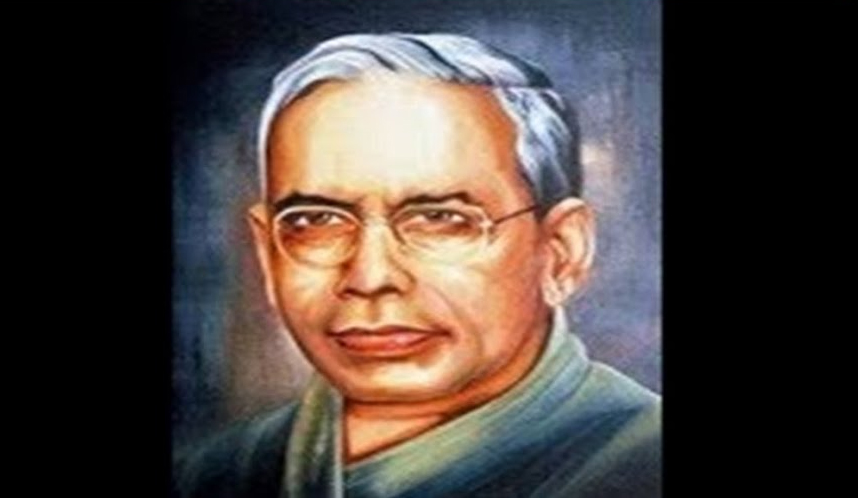Azmit Begum
“If you want to be a reference librarian,
You must learn to overcome not only your
shyness but also the shyness of others”.
— S.R. Ranganathan—
Shiyali Ramamrita Ranganathan was born on 12th August 1892 at Shiyali Tamil Nadu in an orthodox Hidu Brahmin family. He was educated locally at first and then in Chennai city. His higher education was taken at the Madras Christian College. His lifelong goal was to teach Mathematics and he was successively member of the Mathematics faculties at Universities in Mangalore, Coimbatore and Madras. He did six month certificate course in Library Science from University College, London. In 1923, the University of Madras created the post of University Librarian to oversee their poorly organized collection. Among the 900 applicants for the position, none had any formal training in librarianship, and Ranganathan’s handful of papers satisfied the search committee’s requirement that the candidates should have a research background. His sole knowledge came from an Encyclopaedia Britannica article he read days before the interview. In 1924 Ranganathan left Presidency College and he was appointed as first University Librarian of the University of Madras. Development of modern libraries in India was very slow before Ranganathan become librarian in 1924. Dr Ranganathan is the inventor of Colon Classification System.
National librarian day
He was a University Librarian and professor of Library Science at Banaras Hindu University 1945-47, and from 1947-54 he taught at University of Delhi. In 1962 he founded Documentation Research and Training Centre in Bangalore. Dr.Ranganathan made fundamental contribution in Library and Information Profession. Besides five laws of Library Science Dr. S. R. Ranganathan’s other major contributions in the field of Library and Information Science are:-
* Colon Classification, which is known as Analytico-Synthetic Classification System, 1933.
* Classified Catalogue Code (CCC), 1934.
* Chain Index, to determine subject entries for the dictionary catalogue.
Books Authored
* Colon Classification
* Five Laws of Library Science.
* Prolegomena to Library Classification.
* Ramanujan, the Man and the Mathematician.
* Library Book Selection.
* Reference Service.
* Classified Catalogue Code, with additional rules for Dictionary Catalogue Code.
* Library Manual, for Library Authorities, Librarians, and Honorary Library Workers.
* Library Administration
He crystallized the principles of librarianship into five basic statements known as five laws of Library Science, first published in the book form in 1931. These laws have remained a centre piece of professional value.
Five Laws of Library Science, published in 1931:-
a) Books are for Use.
b) Every Reader his/her book.
c) Every book its Reader.
d) Save the Time of the Reader.
e) Library is a Growing Organism.
Five laws of Library Science in the Context of Digital Libraries:-
Digital Libraries are networked collection of digital texts, documents images, sound, data. Software and many more that are the core of today’s Internet and tomorrows universally accessible digital repositories of all human knowledge. According to Digital Library Foundation (DLF) “Digital libraries are organization that provides the resources, including specialized staff, to select, structure, offer intellectual access, to interpret, distribute, preserve the integrity of and ensure the persistence over time of collections of digital work so that they are readily and economically available for use by a defined community.” As per William Arms (2000), digital library is a “Managed collection of information, with associated services, where the information is stored in digital formats and accessible over a network”. When we look to Ranganathan’s original five laws of Library Science one central idea is clear. Libraries and Digital Libraries exists to serve people’s information needs.
Five Laws of Digital Library:-
a) Digital Objects are for Use.
b) Every user his/her Digital Object.
c) Every Digital Object, it’s User.
d) Save the time of the User.
e) Digital Library is a Growing Organism.
Libraries are revered repositories of knowledge and learning, have undergone a radical transformation in the digital age. The traditional role of libraries as custodian of physical books and documents has expanded to encompass digital collections, e-books, audio books, and online databases. This evolution has transcended geographical boundaries, allowing users to access information from anywhere in the world through the internet. Information and Communication Technology has revolutionized the way knowledge is stored, accessed and disseminated. Librarians advocate for equitable access to technology and digital resources, ensuring that all members of the community have the opportunity to benefit from ICT and participate in the digital age.
The five laws of Digital Library help to identify the digital library as a powerful inspiration for technological educational and social change. These laws are applicable to the today’s digital era. These laws are not only applicable to the digital library in general but characterize the establishment enhancement and evaluation of online databases and digital library services as well. The five laws concisely represent the ideal service and organizational philosophy of the digital library. Therefore we can evaluate digital libraries by applying the five laws of digital library.
“You bow down before the books
It wil make the world bow before you”
(The author is Sr. Assistant Librarian in Jammu University)


